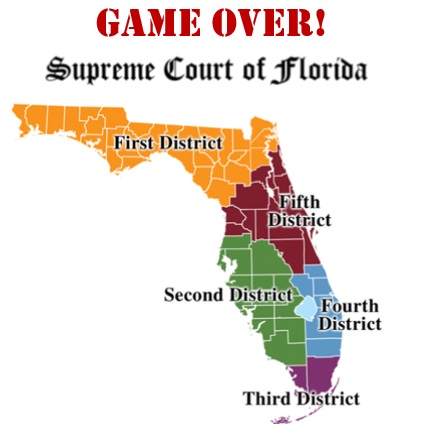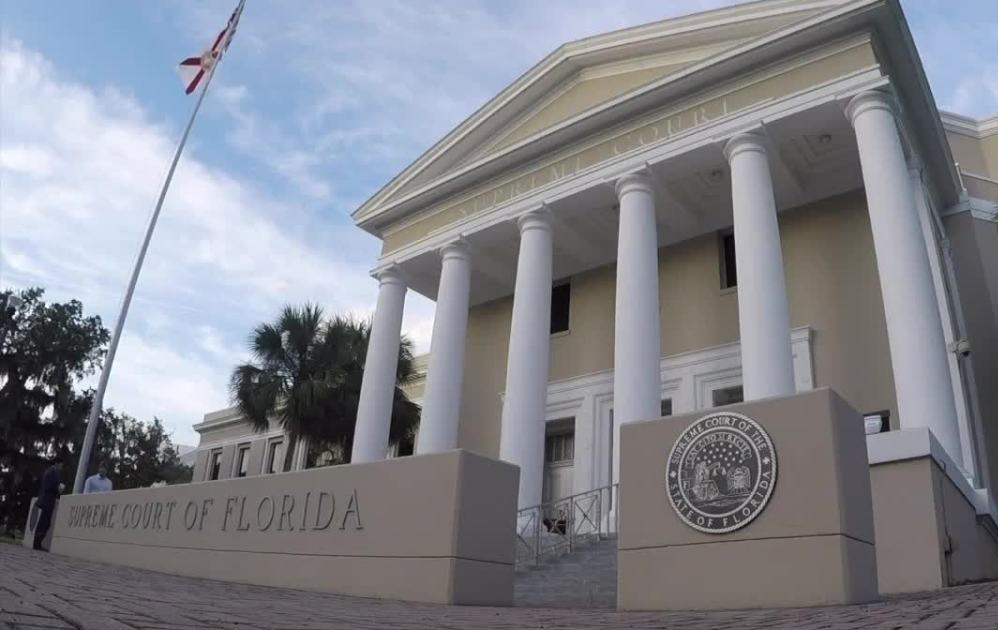GAME OVER: Florida Supreme Court says it’s time to move cases and orders Districts to Comply
Thu May 13, 2021 by OPLawSocialMedia on News

As stay at home orders, moratoriums, and, for many, working remotely from home becomes a memory of the COVID Pandemic, the Florida Supreme Court is trying to force each judicial district to catch up on lost time.
The impact will be profound on judges, lawyers, and their clients.
Cases will move along faster, and more work will be required by attorneys prior to the filing of a lawsuit. Clients will have to expend more resources on the front end of cases and thus retainers will likely increase before an attorney makes an appearance. While the Supreme Court is well intentioned, it will place enormous stress on the judicial system as well as on Judges individually. The question is: whether the system can truly accommodate these changes without additional resources. Only time will tell.
What is the Order?
Released on May 6, 2021 and effective July 1, 2021, a Florida Supreme Court Amended Administrative Order (AOSC20-23, Amendment 13) in relevant part, requires each county in Florida, along with their judicial circuits to comply with new provisions for the management of civil cases. A copy of the full Order can be found here:
The Florida Supreme Court Order
What does this Order mean?
The purpose of the Order, clearly, is to ensure cases are once again moving through the judicial system across the State of Florida. For the past year due to the Coronavirus Pandemic, our Court system essentially slowed to a trickle, and civil trials were not being held. While there have been Zoom court hearings, there is nevertheless a backlog of cases to need to be resolved. As a result, the Florida Supreme Court Order requires the review of each civil case and the issuance of a case management order in order to set deadlines for specific filings, responses, discovery, mediation, and trials.
Have Broward, Palm Beach, and Miami-Dade Counties issued their own orders in response to the Florida Supreme Court Order?
South Florida Courts in Broward and Palm Beach counties have already issued their own Administrative Orders incorporating the Florida Supreme Court Order. A copy of each County’s Admin Order can be found here:
Broward: 2021-19-Civ-Amended.pdf (flcourts.org)
Palm Beach: Civil Differentiated Case Management Forms & Orders | 15th Circuit (palm-beach.fl.us)
Miami-Dade: As of the writing of this blog, Miami-Dade has not yet released their Administrative Order in response to the Order.
Are there differences in how civil cases will be handled?
Cases will be categorized as complex, streamlined, or general. Complex civil cases are designated as such by court order, and typically take more than 18 months to conclude. Streamlined cases are determined by the chief judge if, amongst other things, there are few parties, few motions, and require less than two days of trial time. General civil cases are all other civil cases.
What about stays and moratoriums?
According to the new Florida Supreme Court Order, the Court is directed to issue a case management order on cases currently subject to a stay or moratorium once the stay or moratorium is lifted. The timeline for that order depends upon whether the case was filed on or after April 30, 2021 or before April 30, 2021. If a case is currently not the subject or a stay or moratorium, the time in which a case management order is issued again depends upon whether the case was filed on or after April 30, 2021 or before April 30, 2021. While the Order provides specifics as to timelines, the bottom line is this: The Court is starting to get ready for the stays and moratoriums to be lifted.
How does the Order effect overall my case?
Depending upon the nature of your case, the new Order will affect the process in which your case will be heard by setting specific timelines in which the Court will hear and rule on your case. While the Order is recent, it is clear that the backlog of cases, due to the pandemic, will definitely not remain stagnant and new case filings will be expedited along. However, one thing is certain: the new Order will place pressure on parties to try to settle their matters in mediation or outside of court.
Should you have any questions regarding the new Order and how it may affect your matter, our team is here for you. Feel free to contact us at 954-384-6114 or contactus@oplaw.net
From the trenches,
Roy Oppenheim


